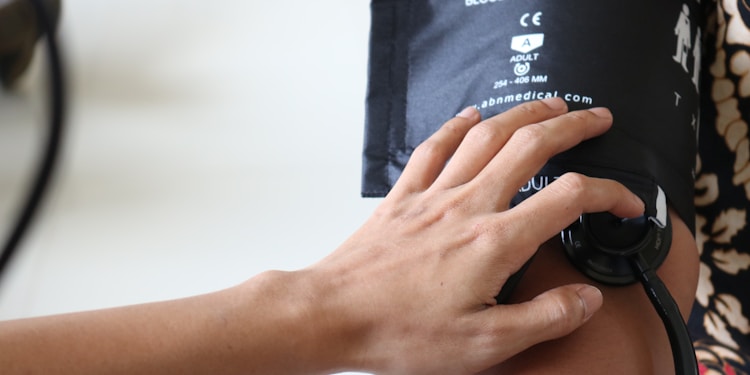In this day and age, we have both the technology to catch most chronic diseases and an increase in chronic diseases worldwide. A recent study estimated that one in three adults across the globe suffer from at least two chronic diseases.
In other words, illness isn’t unusual. Awareness is an important place to start in order to lower your health risks and manage any symptoms you do experience in your lifetime.
This is where health checks come in. If a basic health check is unfamiliar to you, you’ve come to the right place.
We’re going to talk about what health checks are and why they’re important. Read on to find out the information you need to start taking control of your health.
What Are Health Checks?
Health checks, health examinations, and health screenings: all of these terms refer to the same thing. So, what is it that we’re talking about?
Normally, you might schedule an appointment with your doctor because you suspect something is awry. Maybe you’ve been feeling under the weather for a few days and over-the-counter cold medicine isn’t doing the trick. Maybe you feel strain in a specific muscle and you want to know what the problem is and how to treat it.
Health checks are a different kind of medical appointment. They’re not designed to assess specific problems or symptoms that you’re already aware of. Instead, a medical professional will assess or test a number of aspects of your overall health in order to detect what may otherwise be undetectable.
Health checks don’t prevent you from developing an illness or disease. Instead, they assess whether or not you have or are showing signs of an illness or disease. They also give your doctor an opportunity to talk to you about any risk factors in your medical history that you should be aware of.
Basically, the goal is to look for warning signs. If you’re exhibiting any warning signs, your doctor can discuss prevention or treatment options moving forward.
What Do Doctors Look for During a Health Check?
What do doctors do during a health check? Health checks can fall under a few different categories. The basic annual health check would assess things like:
- Blood pressure
- Body mass index (BMI)
- Family medical history
- General physical health (ie lung capacity during exercise, range of motion, etc)
Your doctor may occasionally recommend that you undergo certain cancer screenings. These typically don’t happen annually without cause. Cancer screenings may look for signs of cervical cancer, prostate cancer, breast cancer, and skin cancer.
There are also specialists you can visit for specific health screenings. For example, once you reach your mid- to late-30s, we often recommend an annual eye exam to assess any changes to your vision. If you experience any hearing issues, you will also want to schedule regular hearing exams.
What’s the Point of Getting Regular Health Checks?
There are a lot of ways that our bodies can start to malfunction, so to speak, without our knowing it. For example, a person could develop high blood pressure or high cholesterol without experiencing any symptoms. These issues can be symptomatic of (or lead to) cardiovascular disease and it’s important to treat them to minimize further risks.
At the end of the day, it’s impossible for us to know everything that’s going on in our bodies. While scheduling appointments for specific health needs is important, getting annual health checks is one of the best ways to take control of your health.
Can You Monitor Your Health from Home?
Do all of the tests performed during a health check need to be performed by a medical professional? There are a few ways that you can monitor your health from home. We do recommend that you schedule a health check at least once every few years in addition to checking up on your health, yourself.
There are medical grade tests and equipment that you can purchase and use on your own time. This is especially helpful if you know that you have or are at risk of developing a specific health issue and need to monitor it. For example, these home blood test kits are some of the latest in home health check technology.
What Does “Risk Factors” Mean?
A few times now, we’ve mentioned that health checks can help you become of any risk factors you may have. In fact, this is one of the most important aspects of a health check. The question is, what are risk factors?
Risk factors include any trait or condition that increase your risk of developing a specific illness or disease. For example, smoking cigarettes is a risk factor that increases the chances of developing cardiovascular disease or lung cancer. While someone who smokes cigarettes may be aware of the risk, there are other risk factors that may not be as obvious.
Many health conditions seem to have hereditary links. That means that if someone in your family had, for example, breast cancer, this could increase your risk of developing breast cancer, as well.
Risk factors can be complicated to assess on your own. Many risk factors, like high cholesterol, are undetectable without the proper tests. By getting regular health checks, you can become aware of any risk factors you may have and discover ways that you can monitor or reduce those risk factors.
When Will You Schedule Your Next Health Check?
The chances are high of developing at least one health issue in your lifetime. Regular health checks are an important part of monitoring and maintaining your health. Are you ready to schedule your next health check?
Technology and health go hand in hand as the medical industry makes technological advances that could save lives. To learn more about technology and health, take a look around.
















